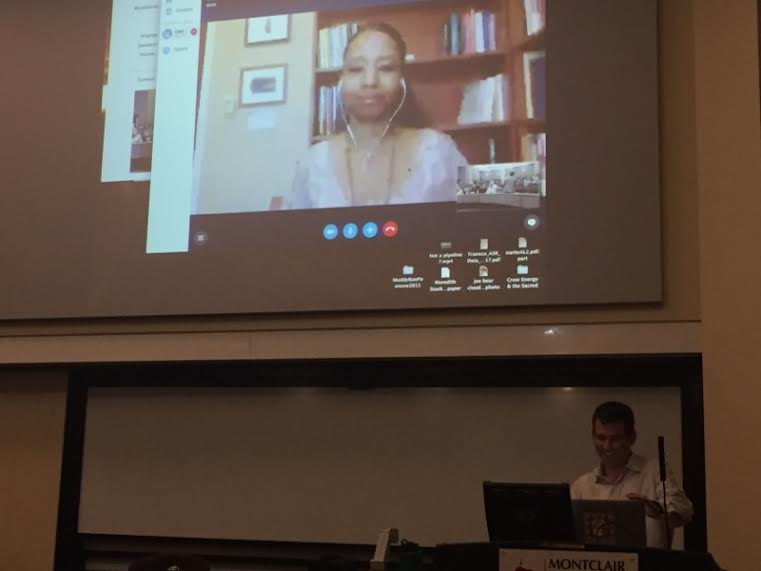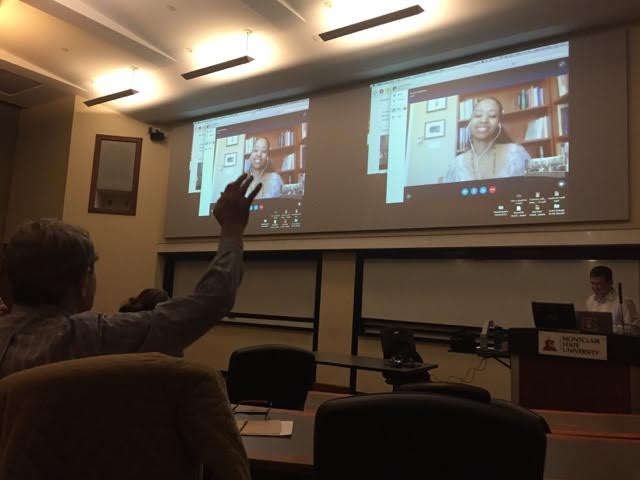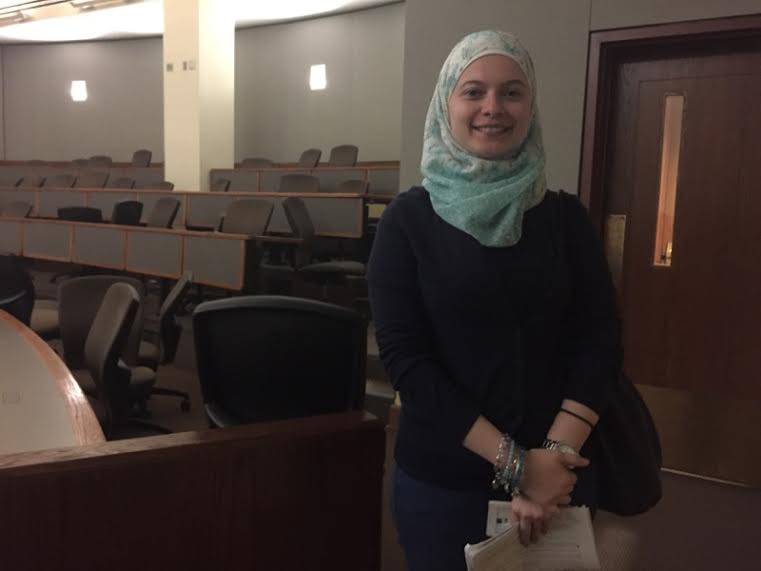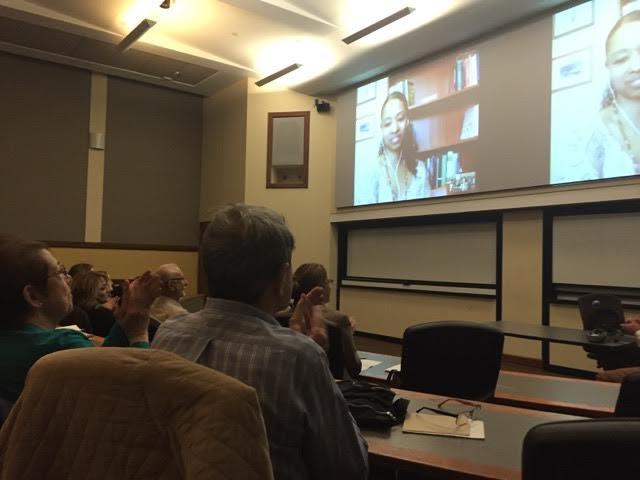
Associate Professor of religion Mark Clatterbuck connecting the Skype call with Dr. Larycia Hawkins.
Photo Credit: Jennifer Leon
The religion department at Montclair State hosted a conversation through Skype last month with Dr. Larycia Hawkins, a professor who made headlines recently because of social media posts she made about Islam.
Hawkins worked for nine years as a tenured political science professor at Wheaton College in Illinois, a Christian liberal-arts institution which follows “the evangelical Protestant tradition,” according to their website.
In December 2015, Hawkins posted a message on Facebook about standing in solidarity with Muslims after the terrorist attacks in San Bernadino, California. In it, she referenced the fact that Pope Francis said that Christians and Muslims worship the same God.
Additionally, Hawkins decided to wear a hijab as another sign of her support of Muslims. She wore the head-covering during the Advent season, the four weeks leading up to Christmas that Christians often observe as a holy time and posted pictures of herself on Facebook wearing the hijab.
Hawkins’ posts gathered attention in the Wheaton community and beyond, and soon, her post went viral, causing the administration of the institution to respond. She was put on paid administrative leave “in order to give more time to explore theological implications of her recent public statements concerning Christianity and Islam,” according to a press release from the college.
Hawkins and Wheaton College mutually parted ways two months after this incident. She is currently at the Institute for Advanced Studies in Culture at the University of Virginia, where she focuses on the relationships of race and religion.
Montclair State’s conversation with Hawkins took place on March 23, and during this event, the professor was able to give her side of the story to the students, faculty and staff in attendance.
After Associate Professor of religion Mark Clatterbuck welcomed the attendants, there were whispers and much anxiety in the lecture hall leading up to the highly anticipated Skype call. “Is it video or just audio?” asked Clatterbuck while looking out to the audience.
Suddenly, a call came through. Students and professors pushed their seats forward to the desk to get a closer view of the screen. The audience saw Hawkins for the first time and began to wave their hands in the air to greet her.

Audience members waving to the screen after seeing Hawkins for the first time.
Photo Credit: Jennifer Leon
“[The posts were] not a stunt,” said Hawkins during the call. “[They were] human solidarity, first and foremost, but secondly a sense of personal motivation from a sense of faith.”
Hawkins said that, as a Christian in the United States, she could put a hijab on and take it off, but she didn’t want it to be a social experiment. Hawkins stressed her desire to be in actual solidarity with women who were suffering.
Clatterbuck said that Hawkins spoke with a number of people associated with the Council for American-Islamic Relations before wearing the hijab during Advent, because she wanted to make sure that Muslims would regard her actions as a show of solidarity and not as offensive.
However, student Sally Shobut, a biology major at Montclair State was not sold, claiming that conservative Muslims will think Hawkins misunderstood the hijab.
Shobut said that wearing the hijab is not only about covering your hair but also about covering your body. Practicing modesty in Islam often means that women cannot show skin, wear tight clothes or perfume or get manicures and pedicures.

Biology major Sally Shobut said, “The hijab is a clear definition that a person is Muslim, so you have to use it in a proper way.”
Photo Credit: Jennifer Leon
“In the United States, it is different, but rules change when you go to Saudi Arabia or a Muslim country,” said Shobut. “I think Christians and non-Muslims would look at me differently if I took [the hijab] off.”
Shobut went on to say that the hijab is a clear definition that a person is a Muslim, so it must be used in a proper way.
On the other hand, Chair of the department Dorothy Rogers said that Hawkins’ action of wearing the hijab was a much broader, universalistic view on the unity of humanity.



